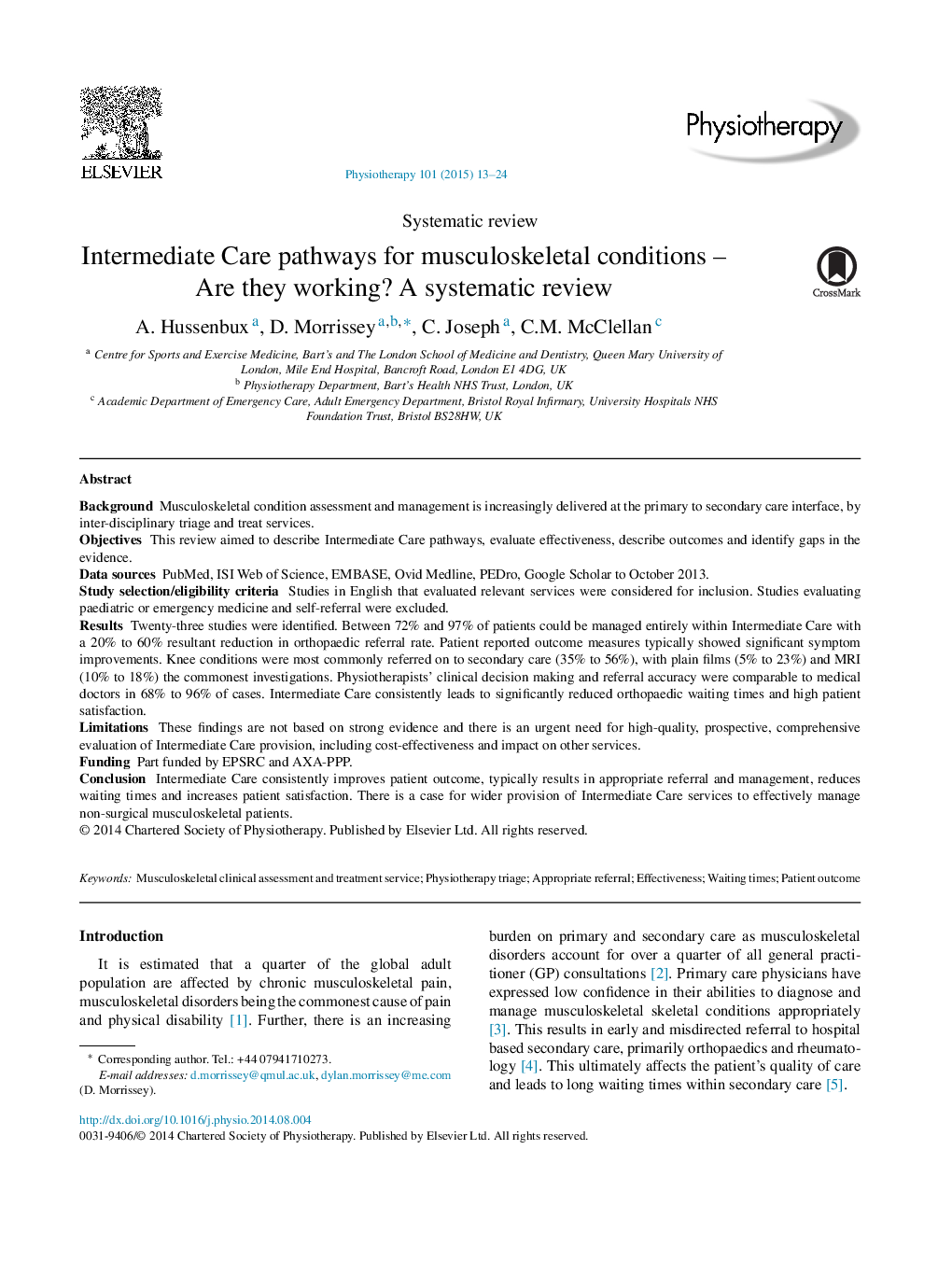| کد مقاله | کد نشریه | سال انتشار | مقاله انگلیسی | نسخه تمام متن |
|---|---|---|---|---|
| 2627187 | 1136065 | 2015 | 12 صفحه PDF | دانلود رایگان |
BackgroundMusculoskeletal condition assessment and management is increasingly delivered at the primary to secondary care interface, by inter-disciplinary triage and treat services.ObjectivesThis review aimed to describe Intermediate Care pathways, evaluate effectiveness, describe outcomes and identify gaps in the evidence.Data sourcesPubMed, ISI Web of Science, EMBASE, Ovid Medline, PEDro, Google Scholar to October 2013.Study selection/eligibility criteriaStudies in English that evaluated relevant services were considered for inclusion. Studies evaluating paediatric or emergency medicine and self-referral were excluded.ResultsTwenty-three studies were identified. Between 72% and 97% of patients could be managed entirely within Intermediate Care with a 20% to 60% resultant reduction in orthopaedic referral rate. Patient reported outcome measures typically showed significant symptom improvements. Knee conditions were most commonly referred on to secondary care (35% to 56%), with plain films (5% to 23%) and MRI (10% to 18%) the commonest investigations. Physiotherapists’ clinical decision making and referral accuracy were comparable to medical doctors in 68% to 96% of cases. Intermediate Care consistently leads to significantly reduced orthopaedic waiting times and high patient satisfaction.LimitationsThese findings are not based on strong evidence and there is an urgent need for high-quality, prospective, comprehensive evaluation of Intermediate Care provision, including cost-effectiveness and impact on other services.FundingPart funded by EPSRC and AXA-PPP.ConclusionIntermediate Care consistently improves patient outcome, typically results in appropriate referral and management, reduces waiting times and increases patient satisfaction. There is a case for wider provision of Intermediate Care services to effectively manage non-surgical musculoskeletal patients.
Journal: Physiotherapy - Volume 101, Issue 1, March 2015, Pages 13–24
